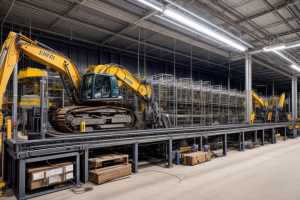
Loud noise, once thought to be just an annoyance, has been proven to have negative impacts on our health and well-being. It can lead to hearing loss, stress, and even cardiovascular disease. This topic is important to understand as we live in a world with increasing noise pollution and many sources of loud noise, such as traffic, construction, and music. In this article, we will explore the ways in which loud noise can harm us and what steps we can take to protect ourselves. So, let’s dive in and learn about the negative impacts of loud noise on our health and well-being.
Noise Levels and Their Effects on the Human Body
The Decibel Scale: Measuring Sound Intensity
Definition of Decibels
The decibel (dB) is a unit of measurement used to quantify the intensity of sound. It represents the ratio between the power of a sound wave and the power of a reference sound wave, typically a tone of 1 kHz at a sound pressure level of 20 micropascals (μPa). The higher the decibel value, the louder the sound.
How the Scale Works
The decibel scale is logarithmic, meaning that the difference between each unit is not constant. An increase of 10 dB represents a 10-fold increase in sound intensity, while an increase of 20 dB represents a 100-fold increase. This is important to understand because even a small increase in decibels can result in a significant increase in sound intensity.
Examples of Common Noise Levels
- Whisper: 20-30 dB
- Normal conversation: 40-60 dB
- Heavy traffic: 70-80 dB
- Power saw: 90-100 dB
- Jet engine: 140-150 dB
These examples demonstrate that even seemingly small differences in decibel levels can have a significant impact on the loudness of a sound. It is important to be aware of the decibel scale and the effects of different noise levels on our health and well-being.
Physiological Effects of Loud Noise
Loud noise can have significant effects on the human body, ranging from hearing loss and damage to increased blood pressure and cardiovascular disease. Here’s a closer look at some of the physiological effects of loud noise:
Hearing Loss and Damage
Prolonged exposure to loud noise can cause hearing loss and damage. This is because the noise can damage the hair cells in the inner ear that are responsible for translating sound waves into electrical signals that the brain can interpret. Over time, this damage can lead to hearing loss, tinnitus, and other hearing-related problems.
Increased Blood Pressure
Loud noise can also cause an increase in blood pressure. This is because the body’s natural stress response is triggered when exposed to loud noise, causing the adrenal glands to release hormones such as adrenaline and cortisol. These hormones can cause the heart rate to increase, blood vessels to constrict, and blood pressure to rise.
Cardiovascular Disease
In addition to increased blood pressure, loud noise can also increase the risk of cardiovascular disease. This is because the constant stress response triggered by loud noise can lead to inflammation in the body, which can damage the blood vessels and increase the risk of heart disease.
Stress and Anxiety
Finally, loud noise can also cause stress and anxiety. This is because the body’s natural stress response is triggered when exposed to loud noise, causing the release of stress hormones such as cortisol. Over time, this constant exposure to stress can lead to anxiety, depression, and other mental health problems.
Psychological Effects of Loud Noise
Loud noise can have a significant impact on our psychological well-being. Excessive noise exposure can lead to sleep disturbances, mood changes, memory and cognitive function impairment, and even social isolation.
Sleep Disturbances
Exposure to loud noise can make it difficult to fall asleep and stay asleep. The constant noise can disrupt the body’s natural sleep-wake cycle, leading to insomnia and other sleep disorders. Chronic sleep deprivation can have serious consequences for physical and mental health, including increased risk of obesity, diabetes, heart disease, and depression.
Mood Changes
Loud noise can also affect our mood and emotional well-being. Prolonged exposure to noise can cause feelings of stress, anxiety, and irritability. This can lead to mood swings, increased stress levels, and even clinical depression. In some cases, loud noise can trigger panic attacks and other forms of anxiety disorders.
Memory and Cognitive Function
Excessive noise exposure can also have a negative impact on memory and cognitive function. The constant noise can interfere with the brain’s ability to process information, leading to decreased attention span, poor memory retention, and difficulty concentrating. This can affect academic performance, work productivity, and overall quality of life.
Social Isolation
Loud noise can also lead to social isolation and decreased social interaction. Prolonged exposure to noise can make it difficult to have conversations or engage in social activities. This can lead to feelings of loneliness and isolation, which can have serious consequences for mental health and overall well-being.
In conclusion, loud noise can have significant negative impacts on our psychological well-being. It can disrupt our sleep, affect our mood and emotional well-being, impair our memory and cognitive function, and even lead to social isolation. It is important to take steps to reduce noise exposure and protect our mental health and well-being.
Noise Pollution and Its Impact on Society
The Environmental Effects of Noise Pollution
- Ecological impacts: Noise pollution can have significant effects on ecosystems, disrupting the natural behavior patterns of wildlife. For example, studies have shown that noise pollution can cause birds to change their migration patterns, leading to habitat fragmentation and potential declines in population numbers. Additionally, noise pollution can cause marine mammals such as dolphins and whales to alter their communication and feeding behaviors, leading to potential disruptions in their social structures and feeding patterns.
- Wildlife disruption: In addition to altering the behavior of individual species, noise pollution can also have a broader impact on entire ecosystems. For example, noise pollution can disrupt the natural soundscape of an area, making it difficult for animals to communicate and navigate their environment. This can lead to increased stress levels and decreased reproductive success in some species.
- Habitat destruction: Noise pollution can also contribute to habitat destruction by altering the physical environment. For example, noise pollution from construction activities can disrupt the natural processes of erosion and sedimentation, leading to changes in the composition of the soil and the destruction of natural habitats. Additionally, noise pollution can contribute to the fragmentation of natural habitats, making it difficult for wildlife to move freely through their environment.
The Social Effects of Noise Pollution
Quality of Life
Noise pollution can have a significant impact on the quality of life of individuals living in affected areas. Constant exposure to loud noise can lead to increased stress levels, sleep disturbances, and a general feeling of unease. This can result in a reduced ability to enjoy leisure activities and can negatively affect overall well-being.
Community Cohesion
Noise pollution can also have a negative impact on community cohesion. When noise levels are high, it can be difficult for people to interact with one another, leading to a sense of isolation and disconnection. This can result in a lack of community engagement and a breakdown in social bonds.
Public Health Concerns
Exposure to loud noise can also have serious public health consequences. Long-term exposure to noise pollution has been linked to a range of health problems, including hypertension, cardiovascular disease, and even hearing loss. This can have a significant impact on the health and well-being of individuals living in affected areas.
The Economic Impact of Noise Pollution
Loud noise pollution not only affects our health and well-being but also has significant economic consequences. The following are some of the economic impacts of noise pollution:
- Lost productivity: Noise pollution can negatively impact productivity in both the workplace and in schools. Studies have shown that excessive noise can reduce concentration and increase stress levels, leading to decreased productivity. This is particularly true in industries that rely on communication, such as call centers, where workers may struggle to hear and understand their clients.
- Healthcare costs: Noise pollution can contribute to a range of health problems, including hearing loss, sleep disturbances, and cardiovascular disease. These health problems can result in increased healthcare costs for individuals and society as a whole.
- Property value decreases: Prolonged exposure to loud noise can make homes and other properties less desirable, leading to decreased property values. This is particularly true in areas with high levels of traffic or industrial noise.
Overall, the economic impact of noise pollution can be significant, affecting both individuals and society as a whole. It is important to take steps to mitigate noise pollution and protect our health and well-being.
Protecting Ourselves from Loud Noise
Noise-Canceling Technology
Noise-canceling headphones
Noise-canceling headphones are a popular solution for those looking to protect themselves from loud noise. These headphones use active noise-canceling technology to block out external noise, creating a peaceful and quiet environment for the user.
The technology works by using a microphone to pick up external noise and then creating an “anti-noise” signal that is played through the headphones, which cancels out the external noise. This results in a much quieter environment for the user, allowing them to focus on their work or relax without distractions.
Noise-canceling earplugs
Noise-canceling earplugs are a more portable solution for protecting oneself from loud noise. These earplugs work in a similar way to noise-canceling headphones, using microphones to pick up external noise and then creating an “anti-noise” signal to cancel it out.
The advantage of noise-canceling earplugs is their portability and convenience. They can be easily carried in a pocket or bag and used in a variety of situations, such as at a noisy construction site or during a loud concert.
Noise-blocking earmuffs
Noise-blocking earmuffs are a third option for protecting oneself from loud noise. These earmuffs work by covering the ears and blocking out external noise. They are particularly useful in situations where there is a lot of loud noise coming from all directions, such as at a construction site or during a loud concert.
The advantage of noise-blocking earmuffs is their simplicity and effectiveness. They are easy to use and provide excellent protection against loud noise, making them a popular choice for those working in noisy environments.
Noise-Reducing Home Design
Creating a peaceful and quiet living environment is crucial in protecting ourselves from the negative impacts of loud noise. One way to achieve this is through noise-reducing home design. Here are some strategies that can be implemented:
- Soundproofing materials: Soundproofing materials are designed to reduce the transmission of noise between rooms or from the outside. These materials can be installed on walls, ceilings, and floors to create a barrier against noise. Some popular soundproofing materials include acoustic panels, soundproof drywall, and mass-loaded vinyl.
- Room layout and design: The layout and design of a room can significantly impact how sound travels. For example, placing furniture against walls can help absorb sound, while open floor plans can allow sound to easily travel between rooms. Consider incorporating dividers or partitions to break up large open spaces and prevent sound from echoing.
- Window and door installation: Windows and doors are common entry points for noise to enter a home. Installing windows and doors with soundproofing features can help reduce noise penetration. Double-paned windows with a gas fill can provide better sound insulation than single-paned windows. Sliding doors with a weatherstripping seal can also help block out external noise.
By implementing these noise-reducing home design strategies, individuals can create a more peaceful and healthy living environment, protecting themselves from the negative impacts of loud noise.
Creating Quiet Spaces
Loud noise can have detrimental effects on our health and well-being, and it is important to take steps to protect ourselves from excessive noise exposure. One way to do this is by creating quiet spaces in our homes, workplaces, and communities. Here are some strategies for creating noise-free zones and reducing noise levels in public spaces.
- Noise-free zones
Creating quiet spaces in our homes can be as simple as designating a noise-free zone, such as a bedroom or study, where we can retreat to escape the din of daily life. This can help us to relax, recharge, and focus on important tasks without the distraction of excessive noise. In public spaces, such as libraries, museums, and parks, noise-free zones can be designated through the use of signs or other visual cues to help people identify areas where they can find peace and quiet.
- Sound barriers
Another strategy for creating quiet spaces is through the use of sound barriers. These can be physical barriers, such as walls or fences, that block out noise from neighboring properties or busy streets. They can also be acoustic barriers, such as curtains or carpets, that absorb sound and reduce its transmission through walls and floors. In public spaces, sound barriers can be used to reduce noise levels in areas such as playgrounds, bus stops, and construction sites.
- Landscape design for noise reduction
Landscape design can also play a role in reducing noise levels in public spaces. Trees, shrubs, and other vegetation can act as natural sound barriers, absorbing noise and reducing its transmission through the environment. In addition, the use of soft surfaces, such as grass or gravel, can help to reduce noise levels by dampening the impact of footsteps and other sounds. By incorporating these strategies into our urban design, we can create more livable, healthier communities that are less impacted by the negative effects of loud noise.
FAQs
1. What is considered loud noise?
Loud noise is any sound that exceeds the recommended decibel levels set by occupational safety and health organizations. This can include sounds from machinery, music, construction, and other sources.
2. How can loud noise affect our health?
Prolonged exposure to loud noise can cause hearing loss, tinnitus, and other auditory problems. It can also lead to sleep disturbances, increased stress levels, and cardiovascular problems. In addition, loud noise can contribute to the development of mental health conditions such as anxiety and depression.
3. How long can we safely be exposed to loud noise before it becomes harmful?
The amount of time it takes for loud noise to become harmful varies depending on the decibel level and the individual’s sensitivity to noise. However, as a general rule, exposure to sounds above 85 decibels should be limited to no more than 8 hours per day.
4. Are some people more sensitive to loud noise than others?
Yes, some people are more sensitive to loud noise than others. Factors such as age, noise exposure history, and genetics can all play a role in an individual’s sensitivity to noise.
5. What can we do to protect ourselves from the negative impacts of loud noise?
To protect ourselves from the negative impacts of loud noise, we can limit our exposure to sounds above 85 decibels, wear hearing protection when necessary, and practice good sleep hygiene. It’s also important to take breaks from noisy environments and seek treatment for hearing problems as soon as possible.







